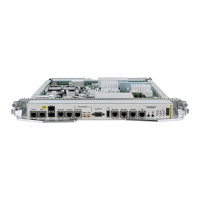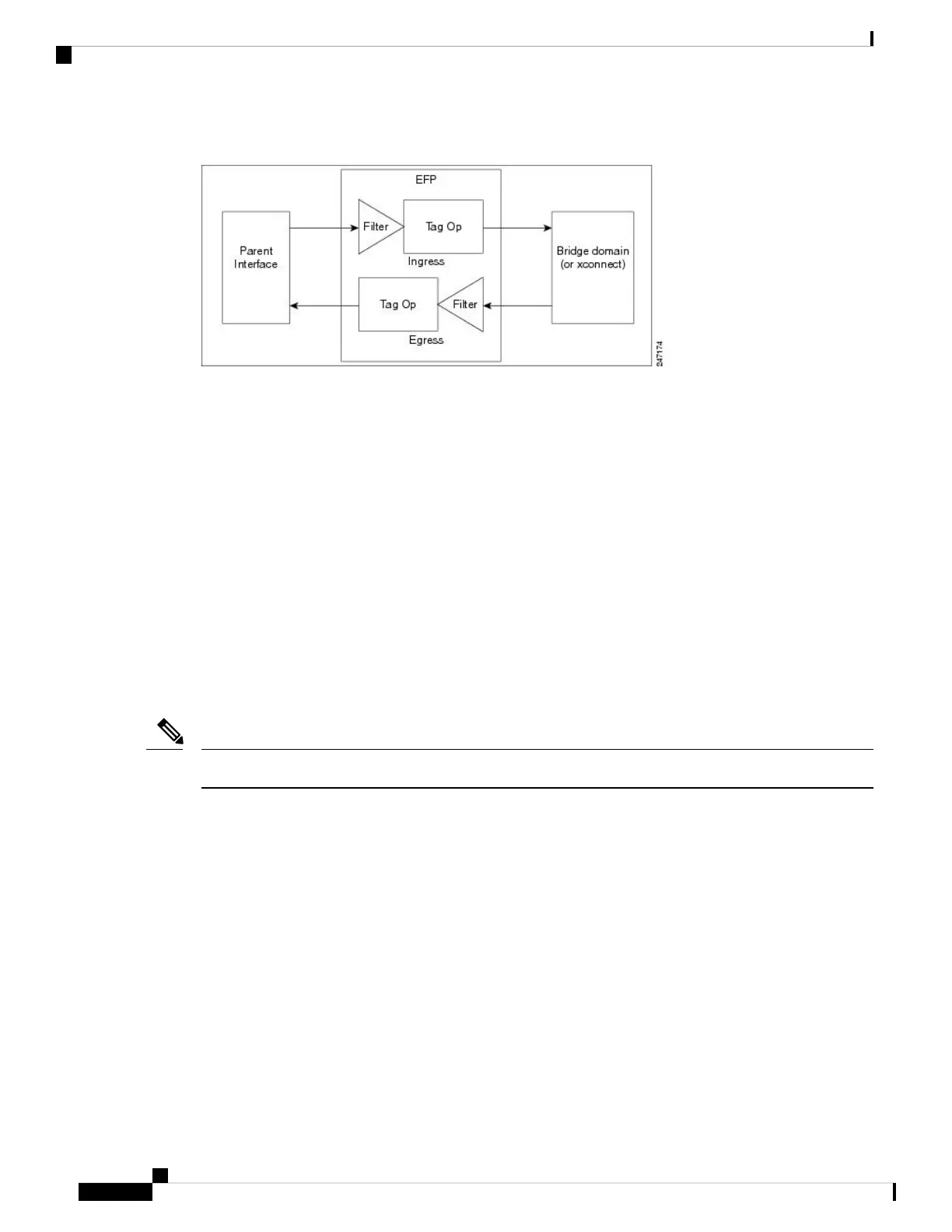Figure 3: EFP Model
An EFP subinterface is configured to specify which traffic on ingress is vectored to that EFP. This is done by
specifying a VLAN, range of VLANs, or QinQ tagging to match against on ingress. All traffic on ingress is
compared to each EFP’s matching criterion, and processed by that EFP if a match occurs. The processing
performed by an EFP can change VLAN IDs, add or remove VLAN tags, and change ethertypes.
Improving the Scalability of EFPs on Bundle Interfaces
You can improve the scalability of EFPs on bundle interfaces in two ways:
• Increase the number of EFPs per chassis from 32000 to 64000.
• Increase the number of EFPs per line card, on a single node point, to the same scale as the physical
interface scaling.
The following example illustrates how to improve the scalability of EFPs per line card:
Consider a B module line card type
1
with a bundle interface scaling of 4000 and a physical interface scaling
of 16000. The scalability of EFPs on the B module is improved by adding three additional bundles of 4000
EFPs per bundle.
The maximum number of EFPs that can be added to a bundle interface is 4000.
Note
The number of EFPs per line card is now scaled to 16000 or 4 bundles of 4000 EFPs each.
EFP CLI Overview
Cisco IOS XR implements a structured CLI for EFP and EVC configuration. The following commands are
typically used to configure an EFP:
• l2transport command - This command identifies a subinterface (or a physical port or bundle-port parent
interface) as an EFP.
• encapsulation command - This command is used to specify matching criteria.
• rewrite command - This command is used to specify the VLAN tag rewrite criteria.
L2VPN and Ethernet Services Configuration Guide for Cisco ASR 9000 Series Routers, IOS XR Release 6.3.x
14
The Carrier Ethernet Model
Improving the Scalability of EFPs on Bundle Interfaces

